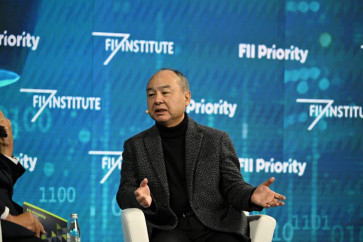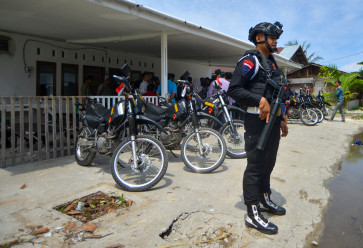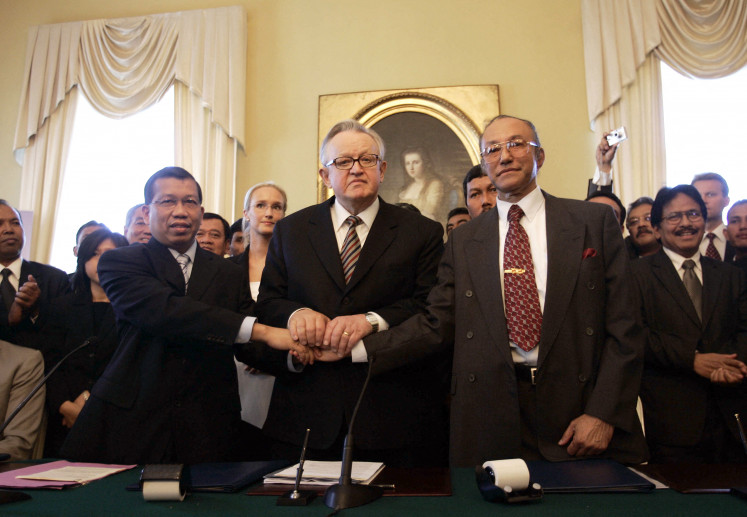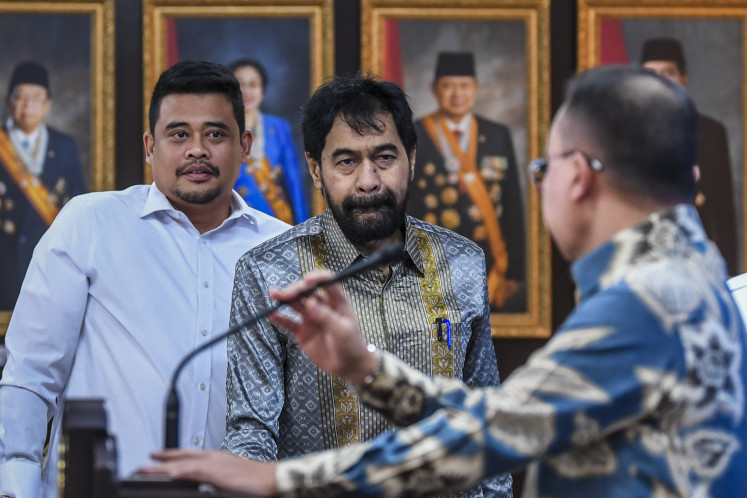Popular Reads
Top Results
Can't find what you're looking for?
View all search resultsPopular Reads
Top Results
Can't find what you're looking for?
View all search resultsRI needs to focus on East Asia, analyst says
Indonesia should play a greater role in shaping the future of East Asia and not be constrained by its commitment toward the Association of Southeast Asian Nations (ASEAN), a foreign policy analyst says
Change text size
Gift Premium Articles
to Anyone
I
ndonesia should play a greater role in shaping the future of East Asia and not be constrained by its commitment toward the Association of Southeast Asian Nations (ASEAN), a foreign policy analyst says.
By shifting its attention to East Asia, Indonesia would be able to maintain its commitment to ASEAN while increasing its selective participation in the global arena, said Rizal Sikma.
Located between the South China Sea and the Indian Ocean, it is inevitable that Indonesia should play a more active role in the region as whatever happens in the region will certainly impact Indonesia.
“ASEAN is too small [for Indonesia’s foreign policy practice] but the world is too large,” Rizal said on Wednesday.
Marked by its reemergence in the last decade to assume a leadership role in ASEAN, the government is casting its eye on a wider political arena. Indonesia has triumphantly become a member of the prominent economic group, the G20. However, it has yet to exert greater influence on the global stage.
East Asia was the most realistic answer for Indonesian foreign policy, which could link Indonesia’s unwavering attachment and commitment to ASEAN with its desire to play a greater role, Rizal said.
For instance, he said, Indonesia could form a caucus with Asian members in the G20 to increase Asia’s bargaining power in the major economic organization.
“Indonesia should be willing to participate as a middle power, rather than try to reflect what most Indonesians believe about their country being a great nation,” Rizal said.
A survey conducted and released last month by the Soegeng Sarjadi Syndicate showed that 80.7 percent of a 2,192 respondents surveyed nationwide said they believed that Indonesia could become a superpower under good leadership.
However, that perception was not in line with the reality that Indonesia still served as a middle power in world politics, Rizal told reporters after a book launch in Jakarta.
The book, titled Indonesia Rising: The Repositioning of Asia’s Third Giant, includes a contribution from Rizal that highlights Indonesia’s possibilities and constraints in embracing an enhanced international position.
The book is a country update series from the Australian National University and is edited by Anthony Reid, an emeritus professor at the university.
According to Rizal, the constraint lies within the country’s domestic politics, which hampers Indonesia’s credibility in playing a so-called two-level game on the world stage.
For instance, even though it has been assessed by Freedom House as the only free country in Southeast Asia, Indonesia’s democratic credentials are constantly undermined by rampant cases of religious intolerance, weak law enforcement, communal tension, terrorism and corruption — in which the latter earned Indonesia a rank of 111 out of 180 countries surveyed by Transparency International.










